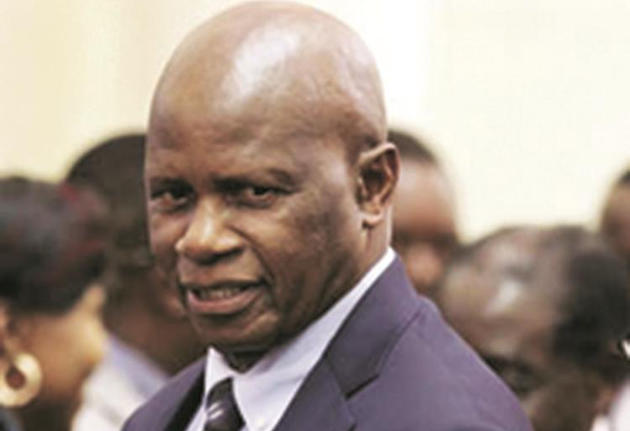‘Zim has never infringed property rights’

Golden Sibanda in JOHANNESBURG, South Africa
Finance and Economic Development Minister Patrick Chinamasa says Zimbabwe has never infringed investors’ property rights, neither will it do so in future, adding that compensation of white farmers will be done as soon as resources are available.
Minister Chinamasa made the remarks yesterday while addressing more than 300 delegates at an oversubscribed Herald Business’ Zimbabwe Trade and Investment breakfast meeting in Sandton City, Johannesburg, South Africa.
Minister Chinamasa implored investors to seize opportunities in the country without delay as the country was undertaking serious reforms to address investors’ concerns.
“Apart from the land reform, (of course a political issue that sought to address socio-economic imbalances), we never infringed property rights, and we do not intend to do that,” he said.
The breakfast meeting in Johannesburg was attended by several prospective investors, fund managers, Zimbabweans in the Diaspora and Industry and Commerce Minister Mike Bimha, Information, Media and Publicity Minister Professor Jonathan Moyo and his deputy Supa Mandiwanzira and Foreign Affairs Deputy Minister Chris Mutsvangwa.
Reserve Bank of Zimbabwe Governor Dr John Mangudya was also part of the proceedings.
“I think we are at a different point than when we started,” said Minister Chinamasa. “The law is sound, but as Government we have been bad in terms of communication. There is no one size fits all.”
Minister Chinamasa said because of the resource nationalism dispensation across the world and indeed Africa, Government will insist on 51 percent equity, paying for its stake by contributing through mineral deposits.
He said other sectors will have specific indigenisation compliance frameworks.
Minister Chinamasa said negative publicity from hostile foreign media was behind economic problems the country has endured over the past half a decade, following the land reform.
Government had since started synchronising its policies to ensure consistency and clarity with a significant effort having gone towards the review of the Indigenisation and Economic Empowerment Law.
“Sooner than later we should be able to clarify on a sector by sector basis, especially with regard to indigenisation,” he said, adding that the Government had no plans to do away with the empowerment policy.
Minister Chinamasa chronicled to investors opportunities in Zimbabwe in the areas of infrastructure (energy, water, roads and rail), utilities, social services (health and education), ICTs, agriculture and mining, among others.
Delegates expressed concern around some of the country’s policies such as the equity laws, enquired about opportunities in telecoms, renewable energy, infrastructure and mining, among others.
Speaking at the event, the chairman of Caledonia Mining Corporation, Mr Stefan Hayden said despite the concerns from other investors around the equity policy, it had worked for his company. Caledonia operates Blanket Mine.
Mr Hayden said his company was making good profits even after indigenising, having given workers 10 percent, the local community 10 percent and 16 percent to the National Sovereign Wealth Fund.
He said the company was in the process of investing $70 million towards expanding production at the gold mine.
Zimbabwe broke ranks with the West, especially Britain and the US, after taking land from white farmers to resettle the landless majority, sparking an economic tailspin whose impact is still rocking the country.
Minister Chinamasa said the indigenisation policy was designed to include locals in mainstream economic activities to avoid a situation where they become by standers.
South African hospitality group, Legacy Group Holdings chairman Mr Bart Dorrestein told delegates that while indigenisation was a concern to foreign investors, some people told him it was no longer a major issue.
“Indigenisation is a concern, but in talking to some local people, it seems it is not a material element as it was before,” he said, adding that there was, rather, need to focus on building a compact relationship between workers and employers, which emphasises reward based on one’s product.
But Minister Chinamasa said Zimbabwe was open for investment.
He implored investors to move in now than wait, pointing out that investors should not regard the country in the image of the past.
The country has undertaken several initiatives in demonstration of its seriousness to attract investment and this included re-engaging multilateral and bilateral lenders as well as all Western countries.
Zimbabwe is working on third successor programme with the International Monetary Fund after successfully completing the first two, a process set to lead to a resolution strategy for its $7 billion external debt.
Government has covered ground towards re-capacitating the central bank, improving the business climate and ensuring banking stability; all in an effort to rebuild confidence in the domestic economy.
Further, it is working on setting up special economic zones and rehabilitation of key infrastructure.










Comments